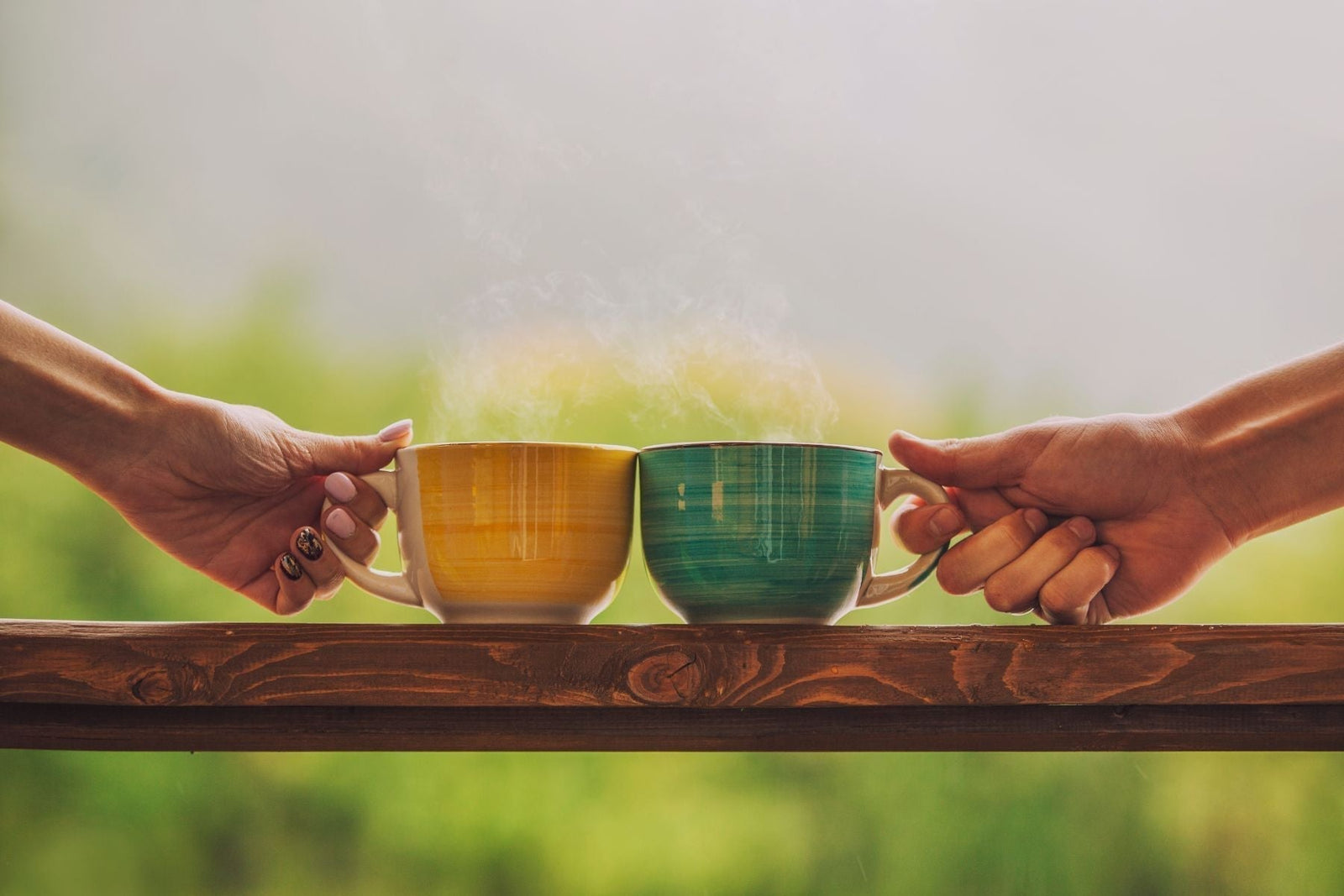When people search forchai vs coffee, they are usually looking for direct answers. Which one has more caffeine? Which one is smoother to drink? Which one fits better into a daily routine? Let’s break down the facts.
1. Caffeine Levels: Gentle vs Intense
One of the main differences iscaffeine content.
-
A typical 8 oz cup of brewed coffee contains95–120 mg of caffeine.
-
A standard cup of chai (made from black tea and spices) contains40–60 mg of caffeine.
(Source: USDA Food Data Central, Mayo Clinic)
This means:
-
Coffee delivers a sharper, stronger caffeine kick.
-
Chai provides moderate caffeine, which feels steady and easier to manage.
For people who want alertness without overstimulation, chai offers a gentler option.
2. Flavor Profile: Bold vs Layered
Coffee:
-
It has a roasted, bitter, sometimes acidic taste.
-
Flavor depends mainly on the roast level and brewing method.
Chai:
-
Combines black tea with spices likecardamom, ginger, cinnamon, cloves, and black pepper.
-
Flavor is layered: floral from cardamom, warm from cinnamon, spicy from ginger, earth from cloves.
If you prefer depth and aroma, chai offers more variety in every cup. Coffee is bold and straightforward; chai is complex and spiced.
3. Flexibility in Preparation
Coffee can be brewed black, with milk, or as espresso-based drinks.
Chai offers even more customization:
-
Hot or iced
-
Sweetened or unsweetened
-
With dairy or plant-based milk
-
Strong or light, depending on steeping time
This flexibility allows chai to fit into different preferences and occasions.
4. When to Drink: Best Times of Day
Because caffeine levels differ, timing also matters.
-
Coffee: Best in the morning when you need a strong boost. Drinking coffee late in the day may interfere with sleep (according to research inJournal of Clinical Sleep Medicine, 2013).
-
Chai: Works across the day. Its moderate caffeine makes it suitable for mornings, afternoons, and even evenings (depending on your sensitivity).
5. Emotional & Cultural Connection
While coffee is often associated with productivity and fast-paced routines, chai is linked with comfort and community.
-
In South Asia, chai is a daily ritual, shared with family and friends.
-
In the West, chai has grown popular as a calming, spiced alternative to coffee.
This cultural aspect is part of why more people explore chai as more than just another hot drink - it feels like a ritual, not just a beverage.
6. Availability & Convenience
Coffee is widely available in cafés, offices, and homes.
Chai is increasingly accessible in ready-to-use formats:
-
Instant sachets
-
Tea bags
-
Loose-leaf blends
Modern chai products make it just as convenient as brewing coffee at home or buying it from a café.
7. Cost Considerations
-
Coffee: Costs vary depending on whether it’s brewed at home or purchased at cafés. Specialty drinks (like lattes) tend to be higher priced.
-
Chai: When made at home, chai is often more affordable per cup. Instant chai sachets are priced competitively with coffee pods and café drinks.
8. Health Research (No Claims, Just Facts)
Both drinks have been studied extensively:
-
Research fromHarvard T.H. Chan School of Public Health notes that moderate coffee consumption (3–5 cups/day) is considered safe for most adults.
-
Research published inJournal of Food Science and Technology (2014) highlights the traditional use of chai spices like ginger and cardamom for flavor and aroma.
Takeaway: Both beverages are safe for daily use in moderation. The choice comes down to personal preference for caffeine strength and flavor.
9. Practical Everyday Guide
If you are deciding between chai and coffee, here’s a quick reference:
-
Need strong energy for early mornings?→ Coffee.
-
Want steady energy for work or study? → Chai.
-
Prefer simple, roasted flavor?→ Coffee.
-
Enjoy layered, spiced flavor? → Chai.
-
Drink late in the evening? → Chai is the safer choice.
10. FAQs: Chai vs Coffee
Q: Does chai have enough caffeine to replace coffee?
A: Yes, for many people. Chai’s 40–60 mg caffeine provides focus without overstimulation.
Q: Can chai be made without milk?
A: Yes. You can drink chai black, with water only, or add any milk you prefer.
Q: Is chai always sweet?
A: No. Unsweetened chai is widely available. Sweetness can be adjusted to taste.
Q: Can I drink both coffee and chai in a day?
A: Yes. Many people enjoy coffee in the morning and switch to chai in the afternoon or evening.
The choice comes down to preference:
-
Coffee delivers high caffeine, bold roasted taste, and intensity.
-
Chai delivers moderate caffeine, spiced flavor, and balance.
For many, chai offers the best of both worlds - flavorful, energizing, and versatile. It’s a drink that adapts to your day rather than overpowering it.
For those exploring authentic chai,Tea India brings premium blends made with100% Indian tea leaves. The range includesinstant chai sachets, tea bags, and loose tea, all crafted to deliver genuine flavor, rich aroma, and authentic taste. With varied options and consistently high quality, Tea India makes it simple to enjoy chai - anytime, anywhere.

